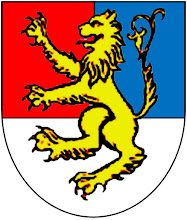 Although the Code Napoléon is not the oldest codified rules of civil law after Codex Justinianus (Corpus Iuris Civilis) - it was preceded by (i) Codex Maximilianeus bavaricus civilis (1756), (ii) Allgemeines Landrecht für die Preußischen Staaten (1794) and (iii) the West Galician code (1797) - the Code constitutes the glorious victory of the Emperor.
Although the Code Napoléon is not the oldest codified rules of civil law after Codex Justinianus (Corpus Iuris Civilis) - it was preceded by (i) Codex Maximilianeus bavaricus civilis (1756), (ii) Allgemeines Landrecht für die Preußischen Staaten (1794) and (iii) the West Galician code (1797) - the Code constitutes the glorious victory of the Emperor.The Code Napoléon (established in 1804) which was promulgated in Belgium, Luxembourg, the Netherlands, North Italy and part of Germany, which was under the suzerainty of the French Empire, in addition to France. Although those countries have been independent from French imperialism, they still maintain and retain most of the rules and principles of the Code, of course with some modifications. Other vassal states, such as Westphalia, Southern Italy and Poland, also took over most of the Code.
The Emperor said: "Ma vraie gloire n’est pas d’avoir gagné quarante batailles. Waterloo effacera le souvenir de tant de victoires. Ce que rien n’effacera, ce qui vivra éternellement, c’est mon Code civil." [My true victory is not the fact that I have won forty battles. Waterloo will erase the memory of all victories. Nothing will ever erase what will live forever, my Civil Code.]
Although Code Napoléon was not the first civil code and did not represent the whole of his empire, it was one of the most influential. It was adopted in many countries occupied by the French during the Napoléonic wars, and thus formed the basis of the private law systems also of Belgium, Italy, Luxembourg, the Netherlands, Spain, Portugal and their former colonies. In the German regions on the left bank of the Rhine (Rhineland Palatinate and Prussian Rhine Province) the Napoleonic code was in use until the introduction of the Bürgerliches Gesetzbuch in 1900 as the first common civil code for the entire German Empire.
The Code Napoléon was also adopted in 1864 in Romania (with some modifications), which is still in force as of 2006 (articles 461 to 1914). Other codes with some influence in their own right were the Swiss, German and Austrian ones, but even there some influence of the French code can be felt, as the The Code Napoléon is considered the first successful codification. Thus, the civil law systems of the countries of modern continental Europe, with the exception of Russia and the Scandinavian countries have, to certain different degrees, been influenced by the The Code Napoléon.
The legal systems of the United Kingdom other than Scotland, as well as Ireland and the Commonwealth, are derived from the English common law rather than from Roman roots. Scots law, though also a civil law system, is not codified; it is strongly influenced by Romano-Dutch legal thought, and after the Act of Union 1707 by English law. The Code has thus been the most permanent legacy of Emperor Napoléon Bonaparté.
See Other Note: The Commonwealth and the Francophone Countries








No comments:
Post a Comment